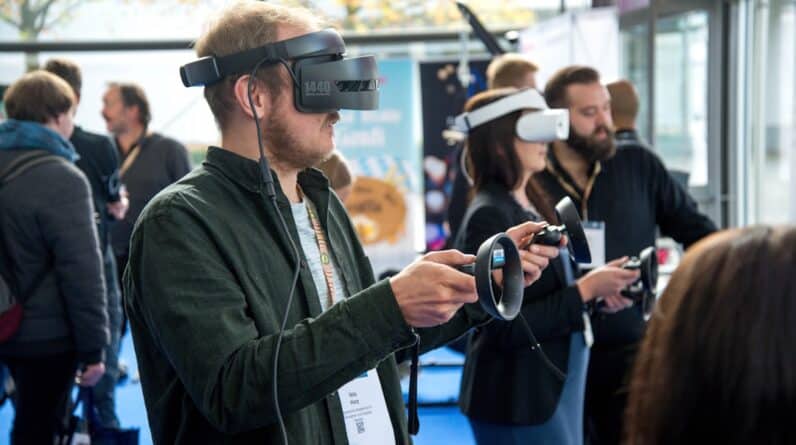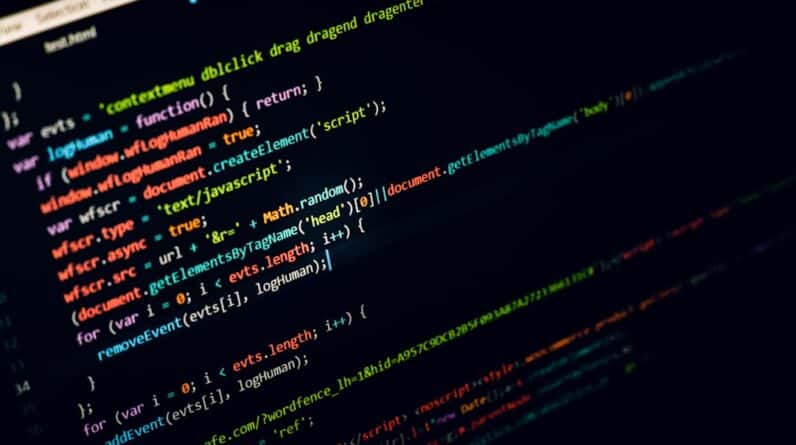As you navigate through the complexities of modern life, you may have noticed the increasing presence of artificial intelligence (AI) in various aspects of your daily routine. From virtual assistants that help manage your schedule to algorithms that recommend your next favorite movie, AI has woven itself into the fabric of society. This technology, once confined to the realm of science fiction, is now a powerful force shaping how you interact with the world.
The impact of AI on humanity is profound, influencing not only individual lives but also entire industries and societal structures. The rapid advancement of AI technologies has sparked a revolution that is transforming economies and redefining human capabilities. As you witness these changes, it becomes clear that AI is not merely a tool; it is a catalyst for innovation and progress.
However, with this transformation comes a host of challenges and questions about the implications of AI on your life and the world at large. Understanding these dynamics is crucial as you consider how to navigate a future increasingly influenced by intelligent machines.
Key Takeaways
- AI has the potential to greatly impact humanity, from the way we work and learn to the way we receive healthcare.
- Ethical and moral implications of AI must be carefully considered, as it has the power to influence decision-making and potentially perpetuate biases.
- AI is expected to shape the future of work by automating tasks, creating new job opportunities, and changing the skills required in the workforce.
- The future of healthcare is likely to be transformed by AI, with advancements in diagnostics, personalized medicine, and patient care.
- AI has the potential to revolutionize education by personalizing learning experiences, providing access to quality education, and improving student outcomes.
- There are potential risks and dangers associated with AI, including job displacement, privacy concerns, and the misuse of AI technologies.
- Regulation and governance are crucial in AI development to ensure ethical use, accountability, and transparency in AI systems.
- The future of AI will continue to impact society, requiring careful consideration of its implications and the need for responsible development and deployment.
The Ethical and Moral Implications of AI
As you delve deeper into the realm of AI, you may find yourself grappling with ethical and moral dilemmas that arise from its use. The decisions made by AI systems can have significant consequences, often affecting individuals and communities in ways that are not immediately apparent. For instance, when algorithms are used in hiring processes or law enforcement, biases embedded in the data can lead to unfair treatment of certain groups.
This raises critical questions about accountability and fairness in a world where machines make decisions that impact human lives. Moreover, the ethical implications extend beyond individual cases to broader societal concerns. As you consider the role of AI in surveillance, privacy, and data security, you may feel a sense of unease about how much control you relinquish to technology.
The potential for misuse of AI technologies poses a moral challenge: how do you balance the benefits of innovation with the need to protect individual rights? Engaging in these discussions is essential as society seeks to establish guidelines that ensure AI serves humanity rather than undermines it.
The Role of AI in Shaping the Future of Work
In your professional life, you are likely witnessing the transformative effects of AI on the workplace. Automation and intelligent systems are reshaping job roles, enhancing productivity, and creating new opportunities. As you adapt to these changes, it becomes evident that AI is not merely replacing jobs; it is also augmenting human capabilities.
Tasks that were once time-consuming can now be completed more efficiently, allowing you to focus on higher-level responsibilities that require creativity and critical thinking. However, this shift also brings uncertainty about job security and the future of employment. As industries evolve, you may find yourself needing to acquire new skills to remain relevant in a job market increasingly influenced by AI technologies.
The challenge lies in embracing lifelong learning and adaptability as essential components of your career development. By understanding the evolving landscape of work shaped by AI, you can position yourself to thrive in an environment where collaboration between humans and machines becomes the norm.
AI and the Future of Healthcare
In the realm of healthcare, AI holds immense potential to revolutionize patient care and medical research. As you consider the implications of AI in this field, you may be struck by its ability to analyze vast amounts of data quickly and accurately. From diagnosing diseases to predicting patient outcomes, AI systems are enhancing the capabilities of healthcare professionals and improving overall patient experiences.
Imagine a future where personalized treatment plans are developed based on your unique genetic makeup and medical history, all thanks to advanced AI algorithms. Yet, as promising as these advancements are, they also raise important questions about ethics and privacy in healthcare. You may wonder how your personal health data is being used and who has access to it.
The integration of AI into healthcare necessitates a careful balance between innovation and safeguarding patient rights. As society moves forward, it will be crucial to establish frameworks that ensure transparency and accountability in the use of AI technologies within healthcare settings.
AI and the Future of Education
As you reflect on your educational experiences or those of younger generations, consider how AI is poised to transform learning environments. Intelligent tutoring systems and personalized learning platforms are already beginning to reshape how knowledge is imparted. With AI’s ability to adapt to individual learning styles and paces, students can receive tailored support that enhances their educational journey.
Imagine a classroom where each student engages with material suited specifically to their needs, fostering a deeper understanding and love for learning. However, this shift also presents challenges that must be addressed. You may question the role of educators in an increasingly automated learning landscape.
While AI can provide valuable insights and support, the human element remains irreplaceable in fostering critical thinking, creativity, and emotional intelligence. As education evolves alongside technology, it will be essential to strike a balance between leveraging AI’s capabilities and preserving the vital role of teachers in shaping well-rounded individuals.
The Potential Risks and Dangers of AI
Malfunction and Manipulation Risks
You might find yourself pondering scenarios where AI systems malfunction or are manipulated for malicious purposes. Moreover, the ethical implications extend beyond individual risks to societal consequences. The concentration of power in the hands of a few tech companies raises questions about equity and access to technology.
Societal Consequences and Collective Action
As you consider these issues, it becomes clear that addressing the potential dangers of AI requires collective action from governments, organizations, and individuals alike. By fostering open dialogue about these risks, society can work towards creating safeguards that protect against unintended consequences while harnessing the benefits of AI.
Towards a Safe and Equitable AI Future
Ultimately, acknowledging and addressing the risks associated with AI is crucial for creating a safe and equitable future where the benefits of this technology can be enjoyed by all.
The Importance of Regulation and Governance in AI Development
As you contemplate the future trajectory of AI development, it becomes evident that regulation and governance play a crucial role in shaping its impact on society. The rapid pace of technological advancement often outstrips existing legal frameworks, leaving gaps that can lead to misuse or unintended consequences. You may find yourself advocating for policies that promote responsible innovation while ensuring ethical standards are upheld.
Effective regulation requires collaboration among stakeholders, including governments, industry leaders, researchers, and civil society. By engaging in discussions about best practices and ethical guidelines for AI development, you can contribute to shaping a future where technology serves humanity’s best interests. As society grapples with complex questions surrounding accountability, transparency, and fairness in AI systems, your voice can help drive meaningful change.
The Future of AI and its Impact on Society
Looking ahead, the future of AI holds both promise and uncertainty as it continues to evolve alongside humanity. As you envision this future, consider how AI will influence various aspects of life—from personal relationships to global challenges like climate change. The potential for collaboration between humans and machines offers exciting opportunities for innovation and problem-solving.
However, navigating this future requires vigilance and proactive engagement with the ethical implications of technology. You have a role to play in shaping how AI is integrated into society—whether through advocacy for responsible practices or by staying informed about developments in the field. By fostering a culture of awareness and responsibility around AI technologies, you can contribute to a future where artificial intelligence enhances human potential while safeguarding fundamental values.
In conclusion, as you reflect on the multifaceted impact of AI on humanity, it becomes clear that this technology is not just a tool but a transformative force shaping our world. By engaging with its ethical implications, understanding its role in various sectors like work, healthcare, and education, recognizing potential risks, advocating for regulation, and envisioning its future impact on society, you can navigate this evolving landscape with awareness and purpose. Embracing the challenges and opportunities presented by AI will empower you to contribute positively to a future where technology serves as an ally rather than an adversary.
If you are interested in exploring more about the evolution of artificial intelligence, you may want to check out the article “The Evolution of Artificial Intelligence: A Historical Perspective” on AILab360. This article provides a detailed look at how AI has developed over time and the impact it has had on society. It offers valuable insights into the past, present, and future of artificial intelligence, making it a great companion piece to “The AI Future: the Future of Humanity.”
FAQs
What is AI?
AI, or artificial intelligence, refers to the development of computer systems that can perform tasks that typically require human intelligence, such as visual perception, speech recognition, decision-making, and language translation.
What is the future of AI?
The future of AI holds the potential for significant advancements in various industries, including healthcare, transportation, finance, and entertainment. It is also expected to bring about changes in the way we work and interact with technology.
How will AI impact humanity?
AI has the potential to improve efficiency, productivity, and decision-making in various aspects of human life. However, it also raises concerns about job displacement, ethical considerations, and the potential for misuse of AI technology.
What are some potential benefits of AI for humanity?
AI has the potential to improve healthcare through personalized medicine and early disease detection, enhance transportation systems through autonomous vehicles, and revolutionize the way we interact with technology through natural language processing and virtual assistants.
What are some potential risks of AI for humanity?
Risks associated with AI include job displacement due to automation, ethical concerns related to privacy and data security, and the potential for AI systems to perpetuate biases and discrimination.
How can we ensure a positive future for AI and humanity?
To ensure a positive future for AI and humanity, it is important to prioritize ethical considerations, invest in education and training for the workforce, and establish regulations and guidelines for the responsible development and use of AI technology.






